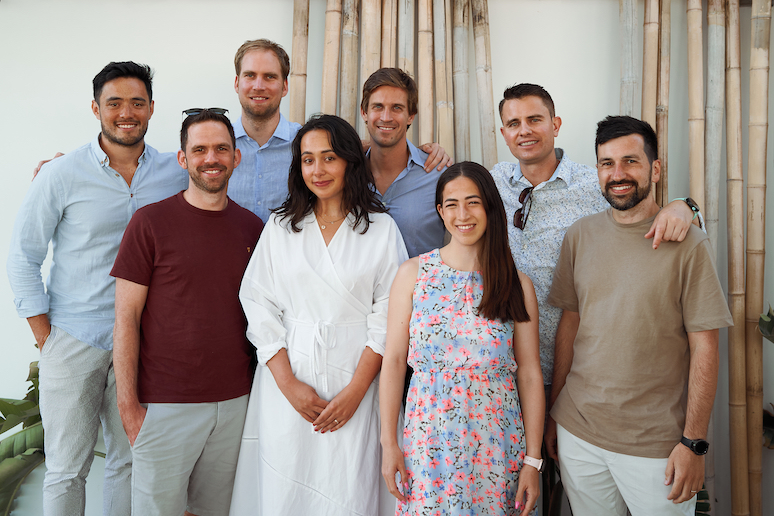Qogita, a two-sided e-commerce wholesale marketplace aimed at retailers largely in the health and beauty sectors, has raised €80 million ($86 million) in a Series B round led by London’s Dawn Capital and Accel. The company plans to use the cash to expand into more categories.
Also participating were previous investors Bessemer Venture Partners and LocalGlobe. Qogita has now raised a total of €119 million.
Targeting SME e-commerce retailers and businesses that want to deal with a more ‘all-in-one’ wholesale platform, Qogita is not dissimilar to Faire.com in the US (which has raised $1.7 billion to date) and Ankorstore out of France (which has raised €365 million) — or indeed Alibaba, which in many ways defined the market for B2B wholesale commerce online.
Qogita was co-founded by London-based Danny Toledano, formerly of Goldman Sachs, and Yaniv Toledano, a former president of Isramco, the oil and gas exploration company operating in the U.S. and Israel. As the names imply, the founders are father and son. CEO Manolis Manassakis, a former director of EMEA operations at Uber, joined this year to take the company to what appears to be the next level.
A request to interview either Toledano was declined. In response to why Qogita hired an outside CEO to lead it, a spokesperson for the company said in an email: “It takes a different skill set to build a company from the ground up and scale it. With the fundraising and ambitious goals, the consensus was that someone with experience in scaling marketplaces would be the best fit to take the company forward.”
The company kicked off in 2021 with an Amazon-like buying process for this time-stretched sector: it handles the process end to end, including shipping and delivery. It also has a BNPL platform for SMEs with cash flow issues.
Over a call, Manassakis told me: “We’re a market where you can think of us as a two-sided marketplace with the buyers or retailers or the sellers or wholesalers, distributors and brands.”
Manassakis admits that B2B marketplaces have had “such a tough time” — the market is crowded, and arguably it makes for very little differentiation among retailers if they are all selling the same things, so both of these will impact margin. But he also believes that there remain opportunities here for those refining the model.
“The incentive to go off platform is very high. In our case, we pair one buyer to multiple sellers. The same order breaks down into pieces, based on the stock of that in that moment, the price in that moment, available quantities minimum quantities, fulfilment rate, quality… 10 different variables,” he said. “So it’s impossible for the buyer to replicate the value we have, because the answer to what is the best possible cart changes every five minutes, and that’s what we’re doing.”
He said the founders started an e-commerce business on Amazon and realised that “by far the biggest problem they had was to procure the goods from their sellers, versus anything else. So then we switched to this current business. That’s how the discovery came about.”
He says there is no “direct competitor” but Faire, Ankorstore and Alibaba come closest.
Ankerstore was contacted for comment but had not replied by the time of publication.
We have also reached out to the investors for more direct comments for this story.
In a statement, Norman Fiore, general partner at Dawn Capital, said: “It is remarkable how complex and completely opaque product procurement still is for small and medium-sized businesses targeting the $6 trillion e-commerce market. Qogita has built an all-in-one platform to address the entire wholesale procurement process.”
Luca Bocchio, Partner at Accel, also added: “The B2B wholesale market in Europe is huge, but also fragmented and complex. Currently, trade is done in an inefficient, undigitized way, and Qogita has the opportunity to become the digital enabler of the whole value chain, bringing more efficiency and transparency to a notoriously grey market.”

Qogita Team
The market to provide these one-click services to SME retailers is hotting up as the wider sector digitises. The global health and beauty market is predicted to be worth $785 billion by 2025.
And in April, Ankorstore launched a new membership programme for independent retailers in Europe, removing minimum checkout amounts and waiving heavy/fragile shipping fees, plus a 90 day BNPL offer.
Last year it raised a $283 million Series C funding round led by Bond and Tiger Global, but it has not escaped the need to cut jobs in this tougher market for raising capital.
techcrunch.com




